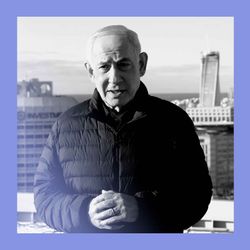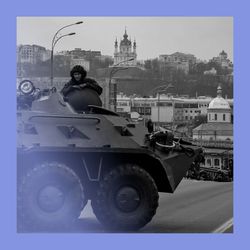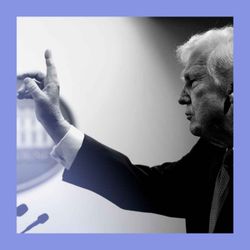Share

The Intelligence from The Economist
Plainly reigns but on a plane to Spain: Venezuela’s leader
•
Nicolás Maduro has stolen an election, again—but this time the rightful winner felt so threatened that he has fled to Spain. We ask what happens next. A valedictory dispatch from our global business columnist asks why the forces of “creative destruction” seem to have faded (10:27). And the youth clubs that stitched together the fabric of young Britons’ lives are disappearing (18:55).
Get a world of insights by subscribing to Economist Podcasts+. For more information about how to access Economist Podcasts+, please visit our FAQs page or watch our video explaining how to link your account.
More episodes
View all episodes

Crude awakening: Iran oil shock
21:20|As America and Israel continue to bombard Iran, much of Iran’s retaliation is directed against energy infrastructure. With tankers blocked and oil prices rising, our correspondent discusses the impact on the global economy. Why do student debts weigh heavily on Britain’s graduates? And is line dancing really becoming sexy? Guests and host:Rachana Shanbhogue, business affairs editorJosh Roberts, capital markets correspondentHollie Berman, news editor, US bureau Rosie Blau, co-host of “The Intelligence” Jason Palmer, co-host of “The intelligence”Topics covered: Iran, oil, gas, global economy, Dubai, Gulf, stockmarketsBritain, universities, student loans, taxLine dancing, New York, bar cultureListen to what matters most, from global politics and business to science and technology—Subscribe to Economist Podcasts+For more information about how to access Economist Podcasts+, please visit our FAQs page or watch our video explaining how to link your account.
Escalation: Middle East war widens
24:42|The war in Iran has entered its fourth day with further American and Israeli strikes, and Iranian retaliation across the region. Now Israel’s prime minister Binyamin Netanyahu has launched a ground offensive in Lebanon. Attacks on Tehran involved the use of Artificial Intelligence, so why is the Pentagon picking a fight with Anthropic, its supplier? And Pokémon turns 30.Watch “The Insider” on Iran: Economist experts ask what will happen nextGuests and host:Anshel Pfeffer, Israel correspondentHenry Tricks, US technology editorMoeka Iida, Japan correspondentRosie Blau, host of “The Intelligence”Topics covered: War in Iran, America, Israel, Lebanon, Hizbullah, Middle EastAnthropic, OpenAI, Claude, Artificial Intelligence Pokemon, mediaListen to what matters most, from global politics and business to science and technology—Subscribe to Economist Podcasts+For more information about how to access Economist Podcasts+, please visit our FAQs page or watch our video explaining how to link your account.
War with Iran: Middle East in flames
29:18|This weekend, America and Israel launched long-anticipated attacks on Iran, killing Ali Khamenei, the country’s supreme leader. Our correspondents analyse what his death means for the country and the strategy behind Iran’s retaliation. We report how Gulf States are dealing with unprecedented instability within their borders. And we assess Iran’s military capability and what might happen next.Guests and host:Nicolas Pelham, Middle East correspondent Gregg Carlstrom, Middle East correspondent Gareth Browne, Middle East reporterShashank Joshi, defence editorRosie Blau, co-host of “The Intelligence”Topics covered: Iran attacks, military capabilityAli Khamenei, succession Donald Trump, foreign policyGulf States, Dubai Listen to what matters most, from global politics and business to science and technology—Subscribe to Economist Podcasts+For more information about how to access Economist Podcasts+, please visit our FAQs page or watch our video explaining how to link your account.
The Weekend Intelligence: How to prepare for an invasion
43:51|Just one generation after they gained independence, people in the Baltic States are watching the threat from the Kremlin creep closer and closer. In Lithuania, the government is preparing the population to resist an invasion. On “The Weekend Intelligence” Katie Bryant travels to Vilnius to ask how facing up to threat is changing the nation. Topics covered:LithuaniaCivil defenceDisinformationListen to what matters most, from global politics and business to science and technology—Subscribe to Economist Podcasts+For more information about how to access Economist Podcasts+, please visit our FAQs page or watch our video explaining how to link your account.Music by bluedot Sessions and Epidemic Sound.This podcast transcript is generated by third-party AI. It has not been reviewed prior to publication. We make no representations or warranties in relation to the transcript, its accuracy or its completeness, and we disclaim all liability regarding its receipt, content and use. If you have any concerns about the transcript, please email us at podcasts@economist.com.Read more about how we are using AI.
Bot the difference: AI’s absence in economic data
22:31|For all the promise of transformation that artificial intelligence offers, a close look at macroeconomic data shows little change. Sit tight. A brutal attack in Nigeria reveals how the security crisis is spreading ominously. And a tribute to Virginia Oliver, who cut an unusual figure on the lobster boat she skippered for decades.Guests and host:Alex Domash, economics correspondentỌrẹ Ogunbiyi, Africa correspondentJon Fasman, senior culture correspondentJason Palmer, co-host of “The Intelligence”Topics covered: Artificial intelligence, macroeconomicsNigeria, security, jihadismVirginia Oliver, Maine, lobstersGet a world of insights by subscribing to Economist Podcasts+. For more information about how to access Economist Podcasts+, please visit our FAQs page or watch our video explaining how to link your account.
Poised and confused: the will-he-won’t-he of Iran strikes
24:55|As a military build-up continues in the Middle East, President Donald Trump’s messaging remains ambiguous. What could, at this stage, head off conflict? Our series on America’s 250th birthday continues with a dive into our archive on the era leading up to civil war. And a couple of recommendations for the silver and the small screen.Guests and host:Gregg Carlstrom, Middle East correspondentAnnie Crabill, senior digital editorAlexandra Suich Bass, Culture editorJason Palmer, co-host of “The Intelligence”Topics covered: Iran, nuclear deal, military build-upAmerican historyentertainment, “Dreams”, “Bridgerton”Get a world of insights by subscribing to Economist Podcasts+. For more information about how to access Economist Podcasts+, please visit our FAQs page or watch our video explaining how to link your account.
Chapo, Mayo, Mencho: another Mexican kingpin falls
24:27|The targeting of “El Mencho”, the leader of one of the country’s two biggest gangs, has resulted in a predictable spate of violence—more of which is virtually assured. We take a rare look inside Russia to see how four years of war has changed the country. And some surprising advice on how to get your best marathon time.Guests and host:Sarah Birke, Mexico City bureau chiefArkady Ostrovsky, Russia editorTim Cross, senior science writerAinslie Johnstone, data journalistJason Palmer, co-host of “The Intelligence”Topics covered: Mexico, cartels, gang violenceRussia, economy, Ukraine warRunning, training, marathonsGet a world of insights by subscribing to Economist Podcasts+. For more information about how to access Economist Podcasts+, please visit our FAQs page or watch our video explaining how to link your account.
A world-changing war: four years in Ukraine
21:04|On the fourth anniversary of a war that many predicted would last mere days, much has changed—even beyond the unthinkable misery in Ukraine itself. Alliances have weakened, Europe is rearming like never before and the very nature of modern war has been redefined. Our correspondents take stock and consider what kind of peace is even possible. Guests and host:Edward Carr, deputy editorOliver Carroll, Ukraine correspondentShashank Joshi, defence editorJason Palmer, co-host of “The Intelligence”Topics covered: war in Ukraine, Russia, defence, diplomacyGet a world of insights by subscribing to Economist Podcasts+. For more information about how to access Economist Podcasts+, please visit our FAQs page or watch our video explaining how to link your account.
When the levy brakes: Trump’s tariffs struck down
21:14|The smackdown by America’s Supreme Court was resounding: the bulk of Donald Trump’s tariffs were instituted illegally. He will try to rebuild his tariff wall, brick by brick—creating a new crop of winners and losers. Australia’s surging One Nation party threatens a conservative coalition that was already looking slightly shaky. And why Agatha Christie’s prolific output is so enduringly popular.Guests and host:Rachana Shanbhogue, business-affairs editorAaron Connelly, Asia diplomatic editorJon Fasman, senior culture correspondentJason Palmer, co-host of “The Intelligence”Topics covered: America’s Supreme Court, Donald Trump, tariffsAustralian politics, Pauline HansonAgatha ChristieGet a world of insights by subscribing to Economist Podcasts+. For more information about how to access Economist Podcasts+, please visit our FAQs page or watch our video explaining how to link your account.